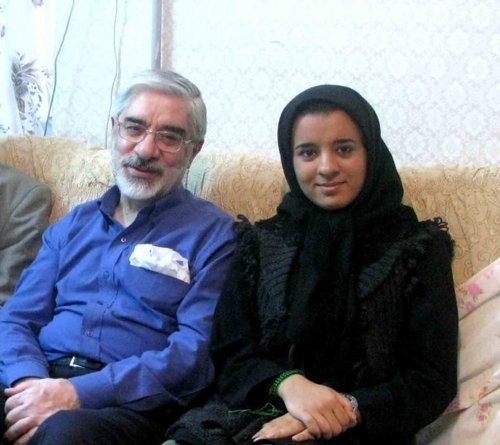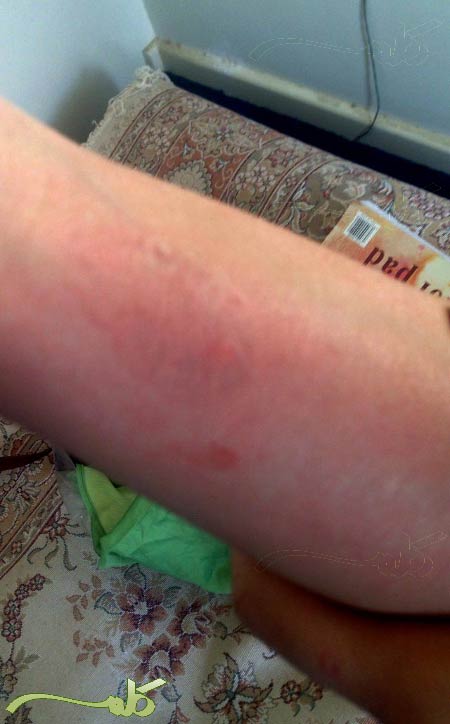November 01-2013

Mir-Hossain Musavi’s daughters were allowed to have dinner with their parents last week. But they had to dine with police guards standing over them and then were 
One of the daughters, Nargess, said that when she resisted the search by female guards, one of the guards bit her on the wrist.
Nargess said she and her sister were told they could visit their father and mother, who is also held under house arrest, and have lunch with them on the occasion of the Shiite holy day of Eid-e Qadir last Thursday.
The visit took place at an Intelligence Ministry safe house in Tehran, next to her father’s place of arrest, in the presence of two female security agents, she said.
One of the guards attempted to search the women as they left, Nargess said.
“We were then met with a bizarre and filthy demand by this prison guard,” she wrote on Facebook. “We couldn’t believe it at first, but she unabashedly repeated her demand, even saying she wanted us to take off our underwear.”
“To try and describe her treatment of us defies basic human decency. After refusing to take off our underclothes, she attacked us and smacked both my sister Zahra and myself in the ear with a great deal of force.
“As I was trying to grab her hand to keep her from attacking us any further, she stopped acting like a human being and bit my entire wrist like a wild animal,” she wrote, attaching a picture of a wrist with what appeared to be teeth marks.
The hardline Fars news agency, which is believed associated with the Pasdaran, quoted an unnamed source as saying Musavi’s daughters attacked the guards in “a fully organized and intentional act to create an atmosphere for the media in order to exert pressure on security and judiciary officials.”
Mir-Hossain Musavi, his wife, Zahra Rahnavard, and Mehdi Karrubi were put under house arrest in February 2011. Nargess wrote that last week’s lunch was the first meal she and her sister have had with their parents since the arrest 2 1/2 years ago.
The trio was confined for inspiring street protests after the two men lost the 2009 presidential election and accused the regime of fraud.
Majlis Deputy Mohammad-Reza Bahonar said last week that the two men could influence their release by changing their positions.
“They created a lot of damage to the revolution, the establishment and national interests. They cannot compensate for everything they did, but they should repent in the presence of God. They can compensate to some extent and that would definitely affect the establishment’s decisions,” Bahonar said.
A political analyst in Tehran told Radio Farda the authorities are afraid that their release could trigger street celebrations that would embarrass the clerical establishment.
“Many of those who celebrated in the streets after Rohani was elected were calling for the release of Musavi and Karrubi,” the analyst said. “Authorities are not sure how people will react. There is also no guarantee—for Iranian authorities—that [the opposition leaders] will remain quiet if released.”
